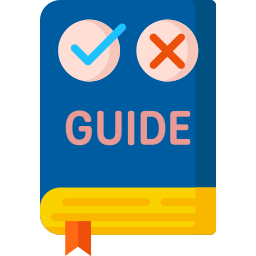The Eligibility for Subjective chief Editor
ISRDO is committed to continue to focus on our goal. We will do our best to develop and enhance innovative ideas through research papers that would make this journal much more important for science and technology. It will contribute to generate new opportunities in the industry and society.
ISRDO welcomes you to apply for a place in the Editorial board or in a Reviewer Panel, so that we could grow and could share the purest of knowledge.
Invitation to be ISRDO Editorial Board Member:
We cordially invite you to apply for a place in the International Scientific Research and Development Organization (ISRDO) Editorial Board.
Eligibility for becoming a member of Editorial Board:
- Minimum Qualification (PhD)
- Should have at least 5/10 years of experience in a specific area of science after obtaining a PhD.
- At least 10 international research papers have been published in reputed publications/journals.
- Attended at least 5 to 7 seminars/workshops/conferences
- At least 2 to 3 memberships with any organization
- At least 2 to 3 achievement's/award/recognition

Invitation to Join ISRDO Subjective chief Editor
If you are interested in reviewing articles for one or more of our journals, please register your contact details, including your ORCID identifier, LinkedIn Profile, institutional affiliation, a short CV, and 5-6 keywords in line with your expertise at the following page Login Page.
ISRDO welcomes you to apply for a place in the Editorial board or in a Reviewer Panel, so that we could grow and could share the purest of knowledge.
Submission Guidelines:
- Before Submission, check Basic Eligibility Criteria.
- Follow the Resume Template : Click here
- To successfully submit your application, complete the following steps : Click here
If you have any questions, please contact our team : [email protected]

Benefits of ISRDO Subjective chief Editor
Review is an essential part in the publication process, ensuring that ISRDO maintains high quality standards for its published papers. Reviewing is often an unseen and unrewarded task. We are striving to recognize the efforts of Editor.
When reviewing for ISRDO journals you:
- Receive a discount entitling you to a reduction in the Article Processing Fee (APC) of a future submission to any ISRDO journal. Discount applied online upon submission or any time prior to final acceptance.
- Receive a personalized appointment letter and Board member certificate.
- Are included in the journal’s annual acknowledgment of reviewers.
- Are considered for the journal’s outstanding Editor Award.
- Being a reviewer opens doors to incredible opportunities. Review services will enhance your knowledge of professional standards; and quickly earn the respect of your peers.
- The names of Editor will be displayed in Editorial Board on respective journals’ webpages. With the links of names, a comprehensive profile of the reviewer will be displayed on the website.

Guidelines for Subjective chief Editor
The Subjective chief Editor will be responsible for final decisions on manuscripts in their field of expertise; they may be invited to review manuscripts. The Subjective chief Editor is responsible for the scientific quality and development of the journal. The initial term is for 2-3 years, which entails:
- Scientific decisions about the journal's scope;
- Inviting distinguished scientists to join the Editorial Board;
- Suggesting research topics and subjects for the journal;;
- Providing support and guidance to Editorial Board Members and Editorial Staff where required;
- Maintaining oversight of the editorial process for individual manuscripts (mainly by making the final decision regarding whether or not a paper can be published after peer-review and revisions);
- Understanding, leading and upholding ISRDO’s peer review guidelines and ethics guidelines;
- Help to promote the journal among their peers
- Attend Board Meetings to suggest journal development strategies;
- Reviewing a Manuscript: Step-by-Step Guidelines for Subjective chief Editor : more-information

Ethical Standards: Editor ROLES & RESPONSIBILITIES
Publication Decisions: The Subjective chief Editor of an article or scientific report is the only one responsible for the decision on the articles to be published. The validation of the work in question and its importance for researchers and readers must always subscribe to such decisions. A publisher may be guided by the policies of the editorial board of a publication and constrained by the legal requirements in place for such matters as defamation, copyright infringement and plagiarism. The Publishing supervisor may consult other Publishing manager or reviewers to make these decisions.
Peer Review : The Subjective chief Editor must ensure that the peer review process is fair, impartial and timely. Research articles should generally be reviewed by at least two or three independent reviewers. The editor should, if necessary, seek additional advice. The Subjective chief Editor will review all potential conflict of interest disclosures and self-referral suggestions made by reviewers to determine if there is a risk of bias.
Fair Play: The editor will evaluate the manuscripts for their intellectual content regardless of race, gender, sexual orientation, religious beliefs, ethnicity, citizenship or the political philosophy of the authors. The editorial policies of a magazine or series of minutes should promote transparency and the submission of complete and honest reports, and the Editor will ensure that Authors and Reviewers have a clear understanding of what is expected of them. The Editor will use the electronic delivery system of a magazine for all communications and will establish, together with the Editor, a transparent mechanism to appeal against editorial decisions.
Confidentiality: The Editor will protect the confidentiality of all material sent to a journal or procedure, as well as all communications with the Reviewers, unless otherwise agreed with the relevant Authors and Reviewers. In exceptional circumstances and in consultation with the Editor may share limited information with the Publishers of other journals when deemed necessary to investigate the suspicion of misconduct in the investigation. For more information, refer to the COPE guidelines on Sharing of Information Among Editors-in-Chief Regarding Possible Misconduct. Unless a journal or procedure uses an open peer review system and / or the Reviewers have agreed to disclose their names, the Editor must protect the identities of the Reviewers. Unpublished materials disclosed in a submitted manuscript will not be used in the investigation of the Editor without the express written consent of the Author. Privileged information or ideas obtained through peer review will be kept confidential and will not be used for personal gain.
Declaration of Competing Interests: Any editorial conflict of potential interest shall be declared to the Editor in writing prior to the appointment of an Editor, and then updated when new conflicts arise. The editor may publish these statements in the journal or series of minutes. The Editor should not participate in decisions about articles that he / she has written himself or that have been written by family members or colleagues, or that relate to products or services in which the Editor is interested. In addition, such presentations will be subject to all the usual procedures of publication, peer review will be handled independently of the relevant Author / Editor and its research groups, and there should be a clear statement to that effect in any published article. . Finally, the Editor will apply the ISRDO Press policy related to the disclosure of possible conflicts of interest by Authors and Reviewers.
